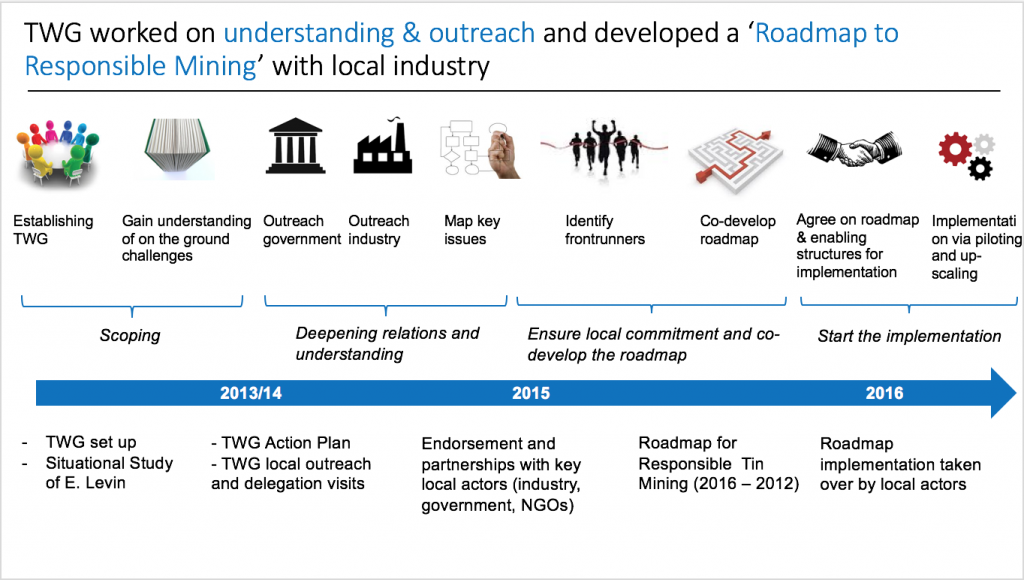Indonesia benefits economically from production of one-third of the world’s mined tin each year. Main sourcing areas are the two islands Bangka and Belitung. Environmental and social of tin production is severe and need to be addressed urgently.
In 2013 the Sustainable Trade Initiative (IDH) convened members of the Electronic Industry Citizenship Coalition® (EICC®) and Friends of the Earth (FoE) to form the IDH Indonesian Tin Working Group. The group was joined later by the international tin industry association (ITRI) and additional corporate members from the electronics and tinplate industries.
The Working Group aims to address the sustainability challenges of tin mining and smelting in Bangka and Belitung while recognizing the economic benefits of the sector.
The private members of the IDH Indonesian Tin Working Group are: Alpha, Arcelor Mittal, ASUS, Apple, BlackBerry, Dell, HP, LG Electronics, Microsoft, Philips, Samsung, Sony, Tata Steel, Huawei. These companies aim to support their supply chain partners to continue sourcing tin from Indonesia in a responsible way.
Non-profit members of the Working Group are EICC, ITRI and Friends of the Earth.
The program focuses on driving the implementation of a roadmap for responsible tin mining in Indonesia.
Next to that, the program is creating the necessary incentives that midstream and downstream tin users (Tin Working Group private members) can implement to support a lasting tin industry transformation.
IDH partnered with Aidenvironment to capture the journey, challenges and accomplishments of the Tin Working Group, a 3 year partnership with down-stream and mid-stream users of the sector. The result of Aidenvironment’s research, interviews and analysis can be found in this final program report. Enjoy the read!
.